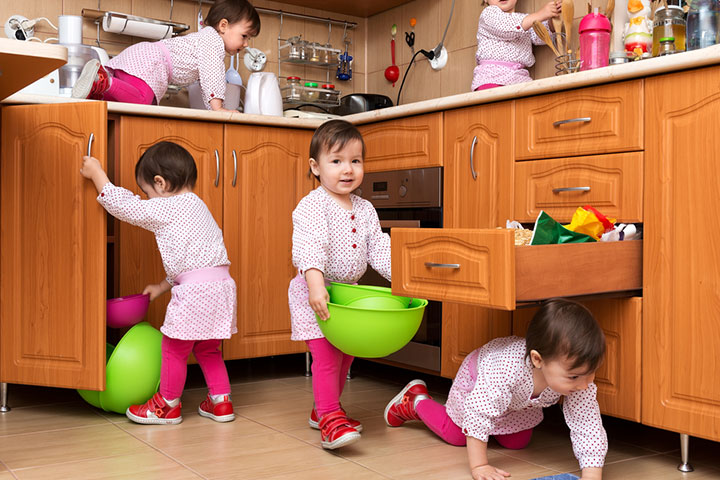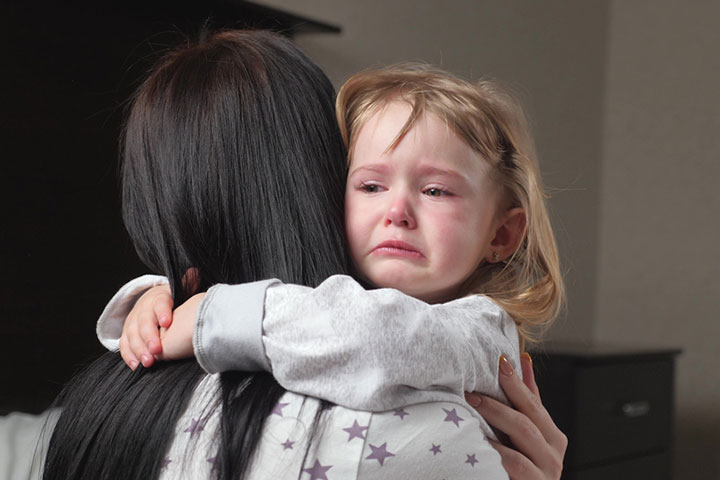
Image: Shutterstock
Did you ever feel like you were doing a decent job at parenting, and then your toddler bursts your bubble by telling you they hate you and runs away from you at a grocery store? Fortunately or rather unfortunately, you’re not the only one. Almost every single parent is convinced that they are doing a good job of raising their kids and teaching them how to behave well. But, parenting, especially discipling the kids is never as easy or smooth as it seems. Most of the time punishing your kids just blows up in your face and this isn’t entirely your kid’s fault.
It takes a whole lot more than a couple of angry words to bring about permanent behavioral changes in your child. One common mistake many parents make is talking to their child like they are an adult. You may think this will help them mature faster but all it will do is confuse them further. Punishments aren’t effective if you don’t apply them to the age of your child, their level of understanding and maturity. Let’s take a look at how to discipline your child based on their age.
1. 1 To 2 Years Old
Image: Shutterstock
Congratulations your baby is now a toddler and this means that life is about to get very busy and complicated for you. Remember those blissful days when you thought late night feeds and diapers changes were taxiing? Well, now you’ve got an overly enthusiastic toddler on your hands 24/7. Your little one is going to want to explore the world around them, so let them. As long as they are supervised and don’t harm themselves or anyone else they really shouldn’t be in trouble.
Remember that your child has no idea how harmful or dangerous certain things can be. They may not be doing these things on purpose. Instead of putting them in time out or yelling at them which will only make them fear abandonment and feeling unloved, explain why something is wrong in simple language. Move them away from the source of harm, like the stove and tell them that they can’t touch anything on it because it is hot and will hurt them.
2. 2 To 3 Years Old
Image: Shutterstock
Sometimes the terrible twos can really live up to its name. But that doesn’t mean your solutions and punishments to correct yet another temper tantrum have to be terrible too. Kids at this age are constantly trying to gain autonomy and self-assertion, while learning there are limitations. This can lead to frustration and the long-dreaded temper tantrums arising in every situation. One common mistake parents make is ignoring the child thinking that a lack of attention will cause them to eventually stop throwing a fit. That won’t happen. Instead try not to lose control. This isn’t anger or defiance that your child is trying to convey, they need you to pay attention to something they think is important. Remove them from the scene instead and ask them why they are behaving like that after they’ve had a chance to calm down. Sit down with them and explain why their reaction was inappropriate while giving them positive examples on how to express the same emotion.
3. 3 To 5 Years Old
Image: Shutterstock
If your child falls into this age group, they’ve likely started attending school or kindergarten. However, they still need guidance to internalize rules and cultivate sound judgment. It’s important to note that this doesn’t involve lengthy lectures or using threats of consequences when they misbehave. Such approaches may have minimal impact on their behavior and make it harder to connect with them in the future. Instead, you can establish and consistently uphold rules and boundaries. Offer clear guidance on the expected behavior and provide timeouts if they deliberately ignore it. Educate them by allowing the logical consequences of their actions to influence them. Additionally, encourage positive behavior through praise, as children in this age group often seek approval from those older than them.
4. 6 To 12 Years Old
Image: Shutterstock
This is the age where your child will start to gain more and more autonomy over their life and how they want to express themselves which can sometimes lead to conflicts between parent and child. Balancing authority and allowing your child some autonomy over their interests is a slippery slope. Make sure your kids still follow house rules set by you and discussed by the entire family. This is your crutch. That way if they violate these rules, they know they are in the wrong. Think of realistic punishments that will not adversely hurt or humiliate your child. And let the logical consequences of their actions affect them.
To discipline your child, you must balance firmness and compassion. While dealing with the issue, keep your composure and treat your kid with empathy. Now that you know how to discipline your child based on their age, this will get easier. Happy parenting!
















